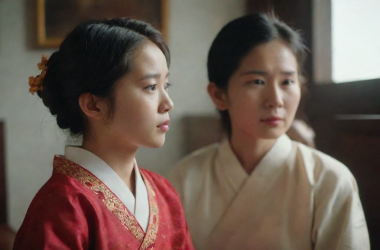Even today, many parents still firmly believe that “life is a track,” forbidding their children from venturing into the wilderness, even if they are college students. In March, as universities across the country started a new semester, many students discovered that their parents had been added to parent groups: some initiated by university counselors, others formed spontaneously by parents. These groups act like “fan support clubs,” allowing parents to keep up with their children’s activities in real-time. The general vibe of these groups can be summarized as: always encouraging, ready to help at any moment, occasionally pushing ‘ships’.
In recent years, the trend of universities forming parent groups has intensified, with active parents creating a complicated web of relationships: some use it for constant supervision, some plan for their child’s employment, and others organize matchmaking for their offspring. It’s not just undergraduates; parent groups for graduate and doctoral students are also on the rise.
This means that even adults nearing 30 may experience authoritative control from their parents. Chinese children grow up as “accelerated kids,” quickly learning all manners and knowledge for entering society, but as they reach true adulthood and the verge of independence, they are yet again controlled by their parents, ostensibly out of concern.
The worries expressed by parents are similar to those they had when their children were teenagers, such as relationship status, dormitory shower water temperature, course selection, location of repair and dry cleaning services, etc., which is a deluge of loving concern, but also a kind of smothering care. To evade this surveillance, many students have no choice but to join the groups pretending to be their parents or even pretend to be parents themselves.
In today’s age of advanced technology, information is highly transparent. We enjoyed more freedom in the past when the flow of information was limited, but now, nearly all information can be scanned and analyzed, plunging us into a life under stringent surveillance.
University Parent Groups: Another Battlefield. One of the daily functions of university parent groups is to increase the social pressure on students. Parental review of exam scores, questioning of vacation schedules, and the like are common. Some parents are very proactive, asking teachers to take photos during their children’s military training, turning it into a “find-your-child game” for the parents to play.
In these parent groups, it is common for parents to casually refer to each other as “in-laws,” share photos of their children, and organize cyber matchmaking events, even though their children may have never met face to face.
The parent groups of college students are becoming a stage for socializing and competition, with some parents sharing photos of their children’s dates, disregarding their children’s privacy, while the classmates’ understanding of each other lags far behind the interactions of the parents in the group. It is very common for parents to praise each other, with discussions often centering around their children’s grades and appearances, making the parent group resemble an arena.
In the groups of masters and doctoral parents, the frequent, almost Versailles-like bragging competitions are astonishing. To avoid disturbances from official school notifications, some parents even create their own small groups for more casual chatting. On their smartphones, according to predefined categorization criteria, numerous parent groups become tools for daily communication.
What’s more profound is that parents vigorously help their children manage daily life online, from take-out to fruit delivery, covering everything, and even going so far as to guide vendors on how to meet their precise delivery demands. This kind of over-involvement in their children’s lives displays the parents’ custodial logic and their intense desire to control every detail of their offspring’s existence.
When we look into the root of Chinese parents’ strong desire to invade their children’s private space, we find that under official school guidance, parents can righteously join group chats and closely monitor every move of their children. How this change in approach connects with economic concepts and social environment is a subject worth further exploration.
In the scholarly work “Love, Money, and Kids: Raising Children Economically,” experts point out that parenting styles are greatly related to the local economic and social environment. In a comparison between countries, experts have noticed that in nations with low inequality and a low rate of return on education, parents tend to be more indulgent. Whereas in societies with high inequality and a high return on education, parents might adopt stricter and more commanding approaches, hoping their children stand out in society.
In different countries and cultures, there are significant differences in parenting styles. In Sweden, parents usually adopt an encouraging, tolerant, and laissez-faire approach to child-rearing. They believe that expecting a pre-school child to remain quiet at the dinner table is a violation of their basic human rights. Formal education in Sweden doesn’t start until the age of seven, and until thirteen, neither parents nor children receive any formal assessments of performance.
By contrast, some parents in the United States and China are described as “helicopter parents,” constantly monitoring every aspect of their children’s lives. This phenomenon is exemplified by the father of famous tennis player Andre Agassi. A retired boxer and Agassi’s first tennis coach, he imposed strict demands on Agassi from a young age, firmly believing that his son had to become one of the world’s top tennis players.
Parents’ educational anxiety is largely due to their belief that their children’s future income level depends on the success of their education. Therefore, some parents take the initiative to set up parent groups which, to some extent, reflects the typical behavior of “helicopter parents.” This educational anxiety has evolved into a collective sentiment, and even if not all parents want to do so, they may inevitably join the competition once influenced by the culture of involution.
In the TV drama “Little Too Perfect,” there’s a typical scene where a mother, originally advocating for joyful parenting, is gradually forced into this vicious circle after a relative’s child demonstrated an extraordinary ability to recite pi. Initially disdainful of tutoring classes, she ends up becoming addicted to them. Likewise, the children become anxious, fearing they will become unpopular due to poor grades.
Ironically, many of the contemporary “helicopter parents” of the 1970s were educated to question authority and scorn materialism. Now, these post-70s parents have a significant difference compared to those born in the 1940s and 1950s who advocated that strict parenting produces filial children. Most post-70s parents have benefited from education and become part of a knowledgeable and elite class. Competition within parent groups is not just on the level of family background but also encompasses academic backgrounds and resources. Today’s parents are not just the traditional “elder” authority but also an authority as academic and life mentors for their children.
In China, children seem to live their entire lives under the influence of parental communities. From group purchases of formula from birth, to book-sharing groups, grade-exam checking groups, to different parental groups for various age segments, parents lay out their children’s lives with clarity. As the children grow, “helicopter parents” have even evolved into “lawnmower parents,” who make sure to clear any obstacle in their children’s path, attempting to eliminate problems at the first sign of trouble. The existence of college parental groups implies that the phenomenon of “overparenting” continues to extend.
The growth of a child is accompanied by the parents’ varying attitudes and expectations towards education. In the primary and secondary school milieu, parents in “overparenting groups” generally classify children as “top kids,” “average kids,” and “underperforming kids,” and as the children grow, they classify them according to societal standards into various ranks and plan corresponding professions and marriage partners for them. This classification method reflects the educational anxieties of different periods, yet the nature of it is quite similar.
According to the research of Geng Yu, a researcher at the Fujian Academy of Social Sciences Institute of Sociology, “overparenting groups” can easily pull parents into a cycle of educational anxiety, like a “Möbius strip,” where they continuously create cocooned information loops. This phenomenon can further evolve into an “echo chamber effect,” where under the educational model of excessive parental attention, not only do children bear the pressure, but they may also develop a “learned helplessness” psychological state, unable to become truly independent adults.
Looking back over different eras, we find that parents’ ways of treating their children are changing. Parents of the 50s and 60s tended to give more, while those of the 70s leaned toward a controlling style of education. Today, with rapid technological development, people begin to feel nostalgic and miss the innocence of times unaffected by technology.
Today’s counselors and homeroom teachers often become the first to bear the pressure and accountability, leading to parents’ anxieties. This anxiety is manifested in their excessive involvement in parental groups to ensure they can control every move their child makes. Some parents even view university parental groups as an efficient way to convert resources, using them to find suitable marriage partners for their children. They see the university as an ideal place for matchmaking but overlook the fact that their children, as independent individuals, should have autonomy in directing their lives.
We cannot help but ask, does a parent’s love for their child really have to be expressed by planning a distant future for them? Is there a need to establish parental groups for adult college students? College should be a stage for students to step towards society, to develop individual differences, but today’s education and growth paths have become increasingly similar, with individuality and direction becoming homogenized. This may be closely related to parents viewing life as a fixed track and excessive interference with their children’s lives.
Sheltering children from the elements does not mean building them a vast greenhouse. Children may not be the overprotected ‘baby giants’ of a greenhouse; however, those parents eager to set up parental groups, are their minds truly mature? While thinking of their children, we should also reflect on what actions truly promote the growth of a child.
References:
“Love, Money, and Children: The Economics of Child Rearing” by Matthias Doepke (US) and Fabrizio Zilibotti (US), June 2019
The Möbius Strip: “Overparenting Groups” and Educational Anxiety, Geng Yu, China Youth Study, November 2021






